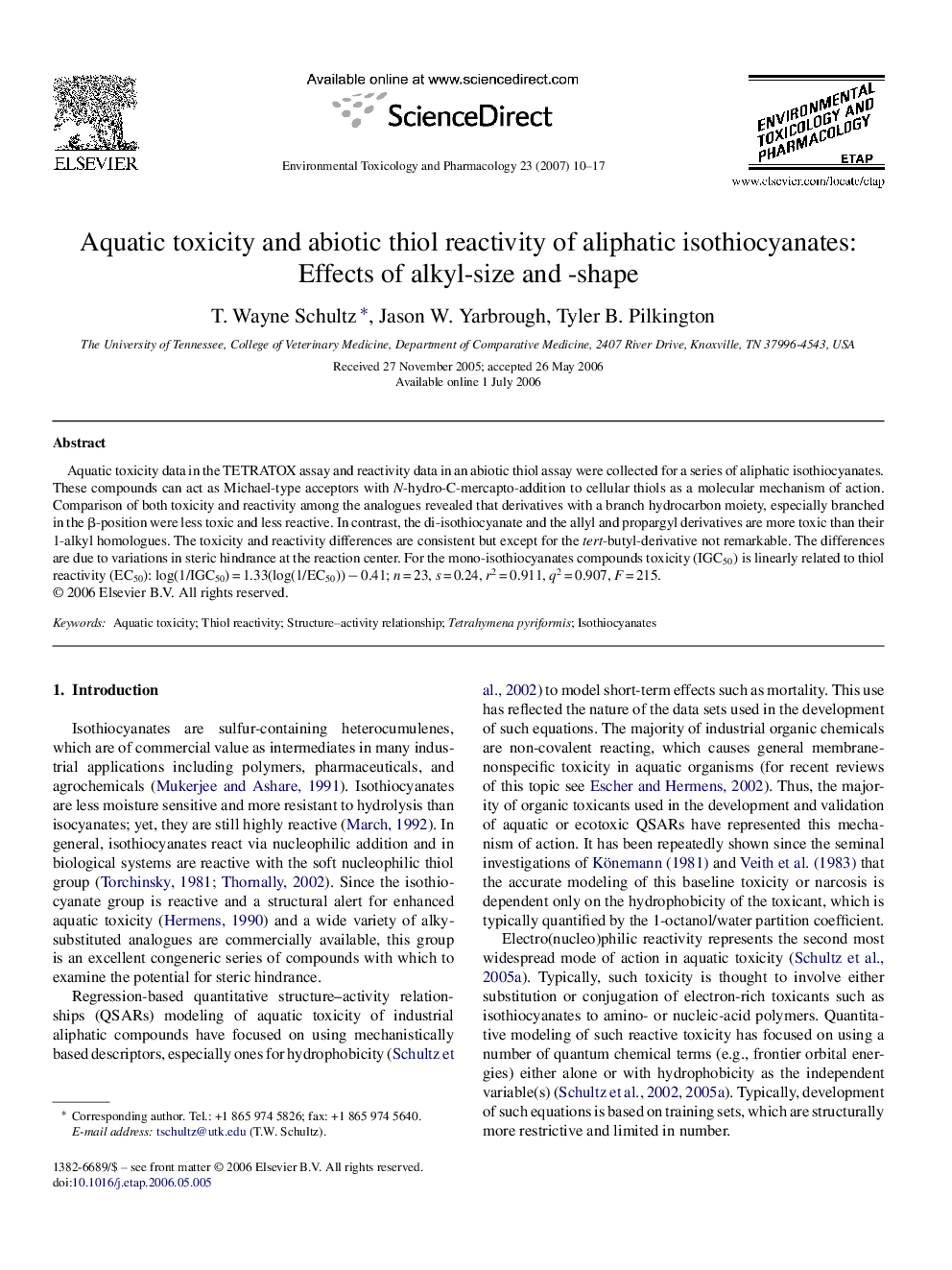| Article ID | Journal | Published Year | Pages | File Type |
|---|---|---|---|---|
| 2584627 | Environmental Toxicology and Pharmacology | 2007 | 8 Pages |
Abstract
Aquatic toxicity data in the TETRATOX assay and reactivity data in an abiotic thiol assay were collected for a series of aliphatic isothiocyanates. These compounds can act as Michael-type acceptors with N-hydro-C-mercapto-addition to cellular thiols as a molecular mechanism of action. Comparison of both toxicity and reactivity among the analogues revealed that derivatives with a branch hydrocarbon moiety, especially branched in the β-position were less toxic and less reactive. In contrast, the di-isothiocyanate and the allyl and propargyl derivatives are more toxic than their 1-alkyl homologues. The toxicity and reactivity differences are consistent but except for the tert-butyl-derivative not remarkable. The differences are due to variations in steric hindrance at the reaction center. For the mono-isothiocyanates compounds toxicity (IGC50) is linearly related to thiol reactivity (EC50): log(1/IGC50) = 1.33(log(1/EC50)) â 0.41; n = 23, s = 0.24, r2 = 0.911, q2 = 0.907, F = 215.
Keywords
Related Topics
Life Sciences
Environmental Science
Health, Toxicology and Mutagenesis
Authors
T. Wayne Schultz, Jason W. Yarbrough, Tyler B. Pilkington,
